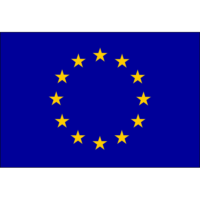Europe has entered a new phase of growth, marked by fiscal stimulus, improving fundamentals and a re-rating of valuations. Against this backdrop, Marcel Stötzel, Co-Portfolio Manager of the Fidelity European Trust PLC (LON:FEV), outlines why he believes quality businesses backed by strong balance sheets and dividend growth potential remain well placed to deliver strong relative returns over the long-term.
Why we remain positive about Europe’s outlook
Europe has entered a new phase of growth, marked by fiscal stimulus, improving fundamentals and a re-rating of valuations. Against this backdrop, Marcel Stötzel, Co-Portfolio Manager of the Fidelity European Trust PLC, outlines why he believes quality businesses backed by strong balance sheets and dividend growth potential remain well placed to deliver strong relative returns over the long-term.
Continental European markets have performed strongly so far this year, as concerns about possible tariffs on goods exported to the US were more than offset by several positive drivers. Investors took confidence from the European Central Bank’s easing stance and the German government’s plans to accelerate its domestic fiscal stimulus via substantial increases in defence spending and investment in infrastructure.
This optimism regarding the future trajectory of European economic growth combined with concerns over the direction of US fiscal policy, made European equities one of the better performing asset classes during the period, even outperforming US equities for the first time in many years.
Against this supportive backdrop, our focus remains firmly on quality. Our approach centres on identifying companies with strong fundamentals, robust balance sheets and the ability to deliver consistent dividend growth. By targeting companies with these attributes, we seek to build resilience in uncertain markets while positioning for long-term outperformance.
Financials at the forefront of returns
A notable development over the past year has been the resurgence of the European banking sector. After more than a decade in the doldrums following the Global Financial Crisis, banks have re-emerged as leaders in terms of performance, supported by stronger earnings and improved fundamentals. We are continuing to see the sector being re-rated by investors as confidence builds, with deposit earnings likely to prove more resilient than anticipated – thanks to structural hedges that have been constructed in recent years.
Bankinter underscores this trend. The Spanish lender not only delivered strong results but also benefitted from market share gains as consolidation re-shaped the domestic banking landscape.
Beyond financials, opportunities in Europe remain attractive. While valuations have risen from historic lows, equities in the region continue to trade at a discount to US peers – despite comparable, and in many cases, superior fundamentals. This relative advantage creates scope for further reappraisal, particularly as expectations of earnings growth strengthen.
Positioning for Europe’s future
While we remain optimistic, we recognise that Europe’s economic growth is not without challenges. The trajectory of US fiscal and trade policy remains uncertain and while inflation has moderated, structural reforms will take time to filter through. Investors must therefore balance optimism with patience, as the benefits of fiscal expansion and policy co-ordination are realised over a period of time.
Nonetheless, the case for Europe has strengthened considerably. Falling inflation, lower interest rates and fiscal support all provide a supportive backdrop for corporate investment and consumer confidence.
More importantly, European companies are not proxies for the region’s economy. Instead, they represent global businesses with resilient balance sheets and proven growth profiles. This combination of structural improvements, attractive valuations and access to quality companies makes Europe a compelling opportunity for long-term investors.
Important information
The value of investments and the income from them can go down as well as up, so you may get back less than you invest. Overseas investments are subject to currency fluctuations. The Fidelity European Trust PLC uses financial derivative instruments for investment purposes, which may expose it to a higher degree of risk and can cause investments to experience larger than average price fluctuations. The shares in the investment trust are listed on the London Stock Exchange and their price is affected by supply and demand. The investment trust can gain additional exposure to the market, known as gearing, potentially increasing volatility. Reference to specific securities should not be construed as a recommendation to buy or sell these securities and is included for the purposes of illustration only. This information is not a personal recommendation for any particular investment. If you are unsure about the suitability of an investment you should speak to an authorised financial adviser. Investors should note that the views expressed may no longer be current and may have already been acted upon. The latest annual reports, key information document (KID) and factsheets can be obtained from our website at www.fidelity.co.uk/its or by calling 0800 41 41 10. The full prospectus may also be obtained from Fidelity. The Alternative Investment Fund Manager (AIFM) of Fidelity Investment Trusts is FIL Investment Services (UK) Limited. Issued by FIL Investment Services (UK) Limited, authorised and regulated by the Financial Conduct Authority. Fidelity, Fidelity International, the Fidelity International logo and F symbol are trademarks of FIL Limited. UKM0925/415087/ISSCSOXXXX/NA






































